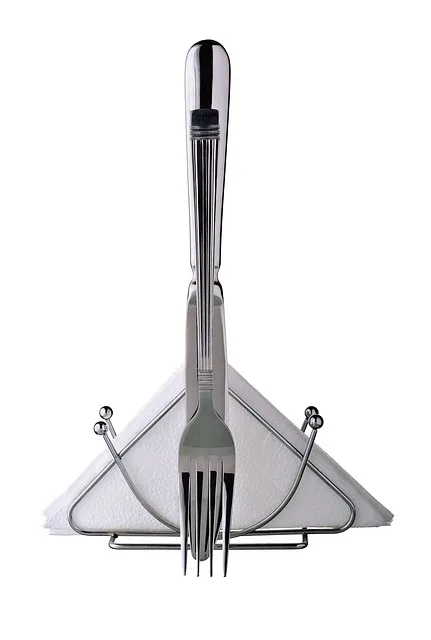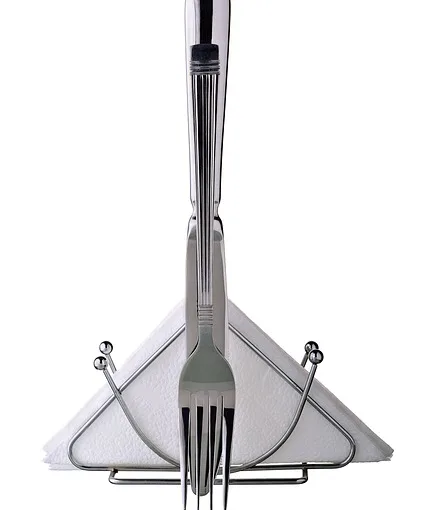First off, you want to consider the material of your cabinets. Are they wood, laminate, or painted? For wooden cabinets, a gentle cleaner is key. Think of a mixture of warm water and a few drops of dish soap—it’s like a spa day for your cabinets! Just grab a soft cloth, dip it in the solution, and wipe away. It’s as easy as pie!
If your cabinets are painted or have a glossy finish, you might want to step it up a notch. A vinegar and water solution can work wonders. It’s like a superhero duo fighting off stubborn stains without damaging the finish. Just remember to rinse with a damp cloth afterward to avoid any residue.

Now, if you’re dealing with heavy-duty grime, a commercial cleaner specifically designed for kitchen cabinets can be your best friend. Look for products that are non-toxic and safe for food areas. It’s like having a trusty sidekick that knows exactly how to tackle tough messes.
And let’s not forget about the power of baking soda! This kitchen staple can be a game-changer for those stubborn spots. Mix it with a little water to create a paste, apply it to the trouble areas, and watch the magic happen. It’s like a mini-explosion of freshness!
So, whether you’re going the DIY route or opting for a store-bought solution, the best cleaner for kitchen cabinets is one that suits your needs and keeps your kitchen looking fabulous.
Shining Solutions: Discover the Top Cleaners for Your Kitchen Cabinets
First up, we have the classic vinegar and water solution. It’s like the superhero of kitchen cleaning! Just mix equal parts of white vinegar and water in a spray bottle, and you’ve got yourself a powerful cleaner that cuts through grease and grime without any harsh chemicals. Plus, it’s safe for all types of cabinet finishes. Who doesn’t love a good multitasker?
Next, consider using baking soda. This isn’t just for your fridge! When mixed with a little water, it creates a paste that can tackle tough stains. Think of it as a gentle exfoliant for your cabinets. Just apply, let it sit for a few minutes, and wipe it away. You’ll be amazed at how it lifts away dirt and leaves your cabinets gleaming.
For those stubborn spots, a commercial cleaner might be your best bet. Look for products specifically designed for wood or laminate surfaces. They’re like the magic potions of the cleaning world, formulated to break down tough stains while being gentle on your cabinets. Just remember to follow the instructions and test a small area first!
From Grease to Gleam: The Ultimate Guide to Kitchen Cabinet Cleaners
Imagine your cabinets as the canvas of your kitchen masterpiece. Just like an artist needs the right tools, you need effective cleaners to bring out the beauty of your cabinetry. So, what’s the secret sauce? First off, consider the type of material your cabinets are made from. Wood, laminate, or painted surfaces each have their own cleaning needs. For instance, a gentle soap and water solution works wonders on painted cabinets, while a specialized wood cleaner can breathe new life into wooden ones.
Now, let’s talk about the power of natural ingredients. Have you ever tried using vinegar? It’s like the superhero of the cleaning world! Mix it with some baking soda, and you’ve got a dynamic duo that tackles tough grime without harsh chemicals. Plus, it’s safe for your family and the environment.
But wait, there’s more! Don’t underestimate the magic of microfiber cloths. They’re like tiny cleaning ninjas, swooping in to capture dust and grease without scratching your surfaces. Just a little elbow grease and the right cleaner can make your cabinets shine like new.
So, next time you glance at those cabinets and think, “Ugh, what a mess!” remember that with the right kitchen cabinet cleaners, you can turn that grease into gleam. It’s all about finding the right products and techniques to make your kitchen sparkle again. Who knew cleaning could be this satisfying?
Cabinet Care 101: Which Cleaner Reigns Supreme in the Kitchen?
First off, you might be tempted to grab any old all-purpose cleaner, but hold your horses! Not all cleaners are created equal, especially when it comes to wood or painted surfaces. You wouldn’t use a sledgehammer to hang a picture, right? Similarly, using harsh chemicals can strip the finish off your cabinets, leaving them looking worse for wear. Instead, opt for a gentle, pH-balanced cleaner that’s specifically designed for kitchen surfaces. Think of it as a spa day for your cabinets!
Now, if you’re a fan of DIY solutions, you’re in luck! A simple mix of warm water and a few drops of dish soap can work wonders. It’s like giving your cabinets a refreshing drink after a long day. Just remember to wring out your cloth well—nobody wants soggy cabinets! For tougher stains, a paste of baking soda and water can be your secret weapon. It’s like a magic eraser that’s safe and effective.
The Best Kitchen Cabinet Cleaners: Expert Picks for a Sparkling Finish
First off, think about the type of finish on your cabinets. Are they painted, stained, or maybe even laminate? Each surface has its own personality, and the right cleaner can bring out its best features. For painted cabinets, a gentle soap and water solution works wonders. Just like a refreshing rain cleanses the earth, this simple mix can wash away the day-to-day mess without damaging the finish.
Now, if you’re dealing with greasy fingerprints and stubborn stains, you might want to reach for a specialized cleaner. Look for products that are specifically designed for kitchen cabinets. These cleaners are like the superheroes of the cleaning world, tackling tough grime while being gentle on your surfaces. Brands like Murphy’s Oil Soap or Krud Kutter are often recommended by experts for their effectiveness and ease of use.
And let’s not forget about DIY options! A mixture of vinegar and water can be a game-changer. It’s like having a magic potion in your cleaning arsenal—natural, effective, and safe for most finishes. Just spray it on, wipe it down, and watch the dirt disappear like a magician’s trick.
So, whether you’re sprucing up your kitchen for a family gathering or just want to enjoy a clean space, choosing the right kitchen cabinet cleaner is key. With the right tools in hand, you’ll be amazed at how a little effort can transform your cabinets from drab to fab!
DIY vs. Store-Bought: What’s the Best Cleaner for Your Kitchen Cabinets?
Imagine walking into your kitchen and being greeted by cabinets that shine like new. That’s the dream, right? DIY cleaners can be a game-changer here. With just a few simple ingredients like vinegar, baking soda, and essential oils, you can whip up a powerful cleaner that’s not only effective but also free from harsh chemicals. Plus, you get to customize the scent! Who wouldn’t want their kitchen to smell like fresh lemon or soothing lavender?
On the flip side, store-bought cleaners offer convenience that’s hard to beat. Just grab a bottle, spray, and wipe—easy peasy! Many of these products are specifically formulated to tackle tough grease and grime, making them a reliable choice for busy folks. But here’s the catch: some of these cleaners can contain chemicals that might not be safe for your family or the environment. It’s like choosing between a quick fast-food meal and a homemade dish; one is quick, but the other is healthier and often tastier.

So, which route should you take? If you love the idea of knowing exactly what’s in your cleaner and enjoy a little DIY project, go for the homemade option. It’s like crafting your own signature dish! But if you’re short on time or just want something that’s ready to go, a store-bought cleaner might be your best bet. Ultimately, it’s about finding what works for you and your kitchen. After all, a clean kitchen is a happy kitchen!
Frequently Asked Questions
What Are the Best Natural Cleaners for Kitchen Cabinets?
Natural cleaners for kitchen cabinets include a mixture of vinegar and water, baking soda paste, and lemon juice. These ingredients effectively remove grease and stains without harsh chemicals. For best results, apply the cleaner with a soft cloth and rinse with water to maintain the finish of the cabinets.
What Types of Cleaners Are Safe for Kitchen Cabinets?
When cleaning kitchen cabinets, opt for gentle, non-abrasive cleaners. Mild dish soap mixed with warm water is effective for routine cleaning. For tougher stains, a solution of vinegar and water or a commercial kitchen cleaner labeled as safe for wood or laminate can be used. Always test any cleaner on a small, inconspicuous area first to ensure it does not damage the finish.
How Do I Remove Grease from Kitchen Cabinets?
To effectively remove grease from kitchen cabinets, start by mixing warm water with a few drops of dish soap. Use a soft cloth or sponge to apply the solution, gently scrubbing the greasy areas. For tougher stains, a mixture of vinegar and water or a baking soda paste can be used. Rinse with clean water and dry with a microfiber cloth to prevent streaks.
Can I Use Vinegar to Clean My Kitchen Cabinets?
Vinegar is an effective and natural cleaner for kitchen cabinets. It helps remove grease, grime, and stains without harsh chemicals. To use, mix equal parts of vinegar and water in a spray bottle, apply to the cabinets, and wipe with a soft cloth. Always test on a small, inconspicuous area first to ensure compatibility with your cabinet finish.
How Often Should I Clean My Kitchen Cabinets?
Regular cleaning of kitchen cabinets is essential for maintaining hygiene and appearance. It is recommended to clean them at least once a month to remove dust, grease, and stains. For deeper cleaning, consider a thorough wash every three to six months, especially if you cook frequently. Pay attention to high-touch areas and spills for more frequent cleaning.
